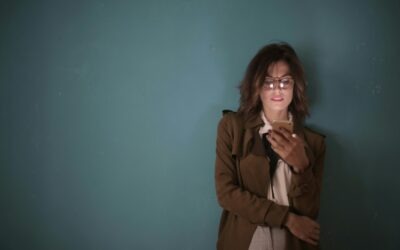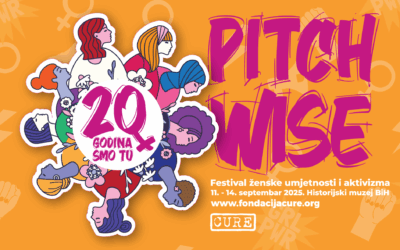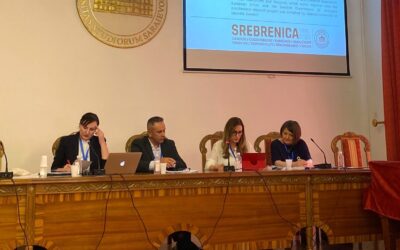COVEN BERLIN will be on a panel discussion that is taking place on the 9th of September focusing on feminism, sex, love, pain and pleasure.
How would you introduce or describe the work you will present at PitchWise 2017?
We are a sex-positive queer feminist art collective with an online platform that organizes art events in Berlin around queerness, gender and intersectional feminism. COVEN BERLIN will be on a panel discussion that is taking place on the 9th of September focusing on feminism, sex, love, pain and pleasure. Our style is DIY, collaborative and community-based and we are open to experiment and play. We have been actively working on these topics since 2013 and we are excited to exchange ideas and strategies with other queer groups. We are particularly interested in non-normative sexuality and the political side of desire.
What do you know about the women’s movement, and the development of intersectional feminism in Bosnia and Herzegovina?
COVEN BERLIN’s international experience has been linked to North America and Southern Europe so far, but we are very looking forward to meeting local intersectional feminist groups and artists at PitchWise. We are interested in the evolution of women’s rights in Bosnia and Herzegovina since the end of the war, but we also want to focus on the development of feminist activism in the country and its relationship with the emerging queer and LGBT scene. We really admire the work of many groups in the country that work together on the promotion of peace, nonviolence and multi-cultural values, as contra-balance to ethnic and nationalistic public discourse.
What similarities can you see in Germany (or other countries you know well) and Bosnia and Herzegovina relating to patriarchal culture and the challenges faced by members of marginalized communities? And what do you think our respective communities and organizations can learn from each other through participation in PitchWise 2017?
Apart from a traditionally patriarchal society, the rise of right-wing ideology and neo-fascist discourses is unfortunately one of the things that these two countries have in common. We also work very closely with American artists, where they are also experiencing a wave of xenophobic and white supremacist acts at the moment. This is of course a huge threat for vulnerable groups and this is why it’s so important for feminist and queer support groups to adopt an intersectional approach.
Was there a specific experience or event, beyond living with the societal norms and prejudices around gender, sexuality, race, etc., that inspired you to create COVEN BERLIN?
Like a lot of things that matter in life, COVEN BERLIN started with a good glass of wine, a tasty meal and the right companion. After months of talking, ranting, laughing and philosophizing about our coming-of-age stories and experiences as queer women, we began to toy with the idea of shifting from our particular kitchen discussions to the public sphere. We had so much energy and so many things to say, and yet the words seemed to simply evaporate into thin air like a puddle on a hot summer day. We needed a space where not only could we share our opinions but also create a new platform to help defy heteronormativity and sexism in our society. Suddenly a flip switched in our minds and we just knew that we had to take the terrifying and exciting step from words to action, from fantasy to reality.
What kind of reactions has COVEN BERLIN received, and from whom?
At first insecurities and a high dose of self-criticism made our attempts to reach a broader audience We attracted interested – positive reactions, requests and participation. Our aim is to provide an open space for our contributors to start a multidirectional dialog and to express themselves with words and visuals. From brainy to frivolous to edgy, our main intention is to share our experiences and thoughts on gender and sexuality, as well as their reflection in our social interactions. We think of COVEN BERLIN as a plural, fluid and critical collective of people coming from different sociocultural backgrounds. And this means that sometimes our personal opinions do not match. However, we embrace this diversity and understand it as an enriching aspect of the collective.
What do you see as COVEN BERLIN’s most important accomplishment or role in the intersectional feminist agenda?
We try to actively fight against the aggressiveness and competitiveness of the art world. We support the artists we curate and they support us. Integrity is important for us. I love this project because it is a clear example of how good quality art exhibitions can exist in a context that is diagonally opposed to the elitism of the traditional art circuits. We are making exciting, contemporary and relevant works based on community support and compassion and not in patriarchal capitalism, and we are very proud of this. We want art to be a medium for connection.
How do you ensure that your spaces and actions are inclusive of individuals of differing identities, and how can other people and organizations do the same?
We try to be aware of power structures and prioritize those who are less represented in society. COVEN BERLIN has been working with artists across disciplines since 2014 and we have amassed a considerable network and community of queer feminist friends, supporters, and collaborators in the city. We are learning and producing work together. However, we are making an active effort to open our circles to new artists who have a common understanding of social justice, oppression and the value of community – through public open calls and contacting associations who work specific populations who are more vulnerable to suffering discrimination.
Can you highlight one piece from your website that you really like, and tell us about it?
It’s hard to choose, we recommend you to just browse the website to find great articles and interesting art. But for example, we really like our visual interviews series, where different artists share their view on different topics through images:
http://www.covenberlin.com/category/visual-interviews/


